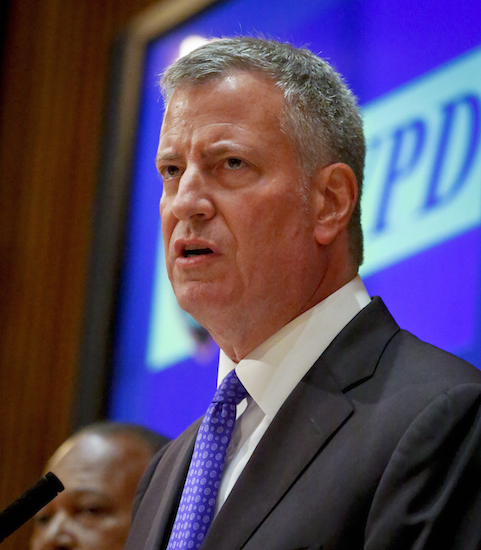Mayor’s ‘Building Healthy Communities’ initiative aims to improve health outcomes in 12 underserved neighborhoods, including Bed-Stuy, Brownsville, Canarsie

Mayor Bill de Blasio and Senior Advisor Gabrielle Fialkoff announced on Thursday Building Healthy Communities (BHC), a public-private partnership designed to improve health outcomes in 12 chronically underserved neighborhoods across the five boroughs. Spearheaded by the Mayor’s Office of Strategic Partnerships and the Fund for Public Health, BHC is a multi-agency initiative that focuses on three key goals: increasing opportunities for physical activity, expanding access to healthy and affordable food, and making improvements to public safety.
BHC leverages $270 million in public capital investments in addition to $12 million in private funding. The 12 neighborhoods BHC is engaging with are Brownsville, Bedford-Stuyvesant, Canarsie, East Harlem, Mott Haven, Hunts Point, Morrisania, Central Harlem, Corona, Flushing, Mariners Harbor and Stapleton.
“Today’s public health problems are often complex, requiring broad partnership and collective action across sectors,” said de Blasio. “Building Healthy Communities is another step forward in ensuring that every neighborhood has the tools it needs to be healthy and, most importantly, it brings communities together to make the choices that instill a culture of good health.”
